You see a cute outfit/pair of shoes/piece of jewelry that’s just your style, and it’s totally affordable! But it’s on Facebook. Not even on Facebook Marketplace, mind you. This looks like a regular “sponsored” ad post that you scroll past in your feed. Surely it’s safe to purchase, right? Well, that’s where you’d be wrong. But before you beat yourself up for falling prey to an overseas Facebook scam seller, remember that it happens to thousands of people every day. Today, I’ll show you how to spot a Facebook scam seller that looks like a 100% legitimate business.
Scammy Facebook Ads Often Use Photos Stolen From Real Retailers’ Websites
Many people that fall victim to these pop-up shop scams get fooled by professional-looking photos of quality products. That’s because some Facebook scam sellers create ads using “real” photos stolen directly from the original retailer. (I noticed a ton of these pop up in my feed over the last month, which is what inspired this post.) Here’s an example screenshot I grabbed from one recent Facebook scam retailer:
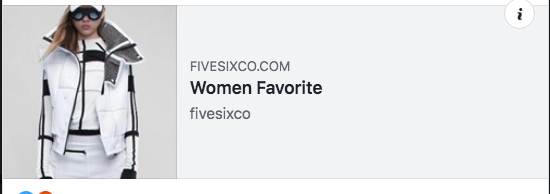

Now, I know for a fact that this jacket comes from Demobaza, a high-end couture designer based in Sofia, Bulgaria. (Say what you want about Demobaza’s price point, but the designs are completely original.) After scrolling past the same few photos in ads for companies with different names, I started flagging them. Here’s what those Facebook scam ads using the same 3-4 stolen photos look like now in my support inbox:
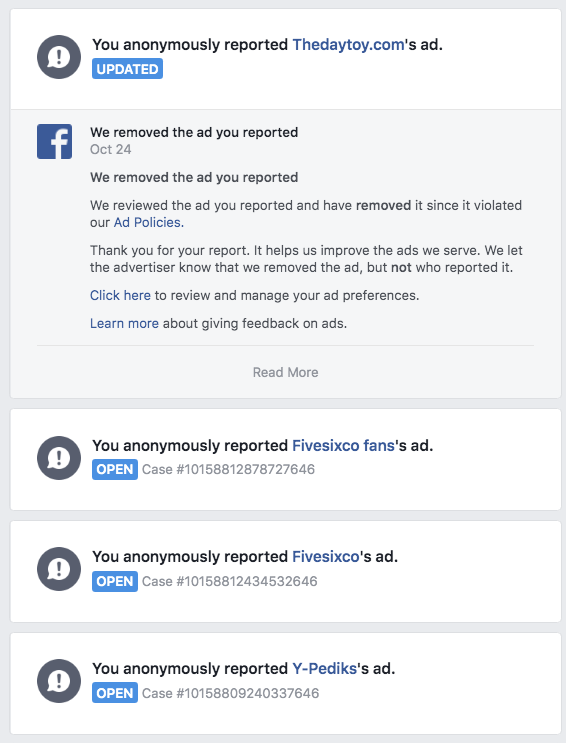

If you suspect you’re seeing an ad that uses stolen photos, what should you do? First, try screenshotting the ad and uploading the image to Tineye.com. Here’s an example where I used an image from a Facebook scam store called “Chicalisa”:
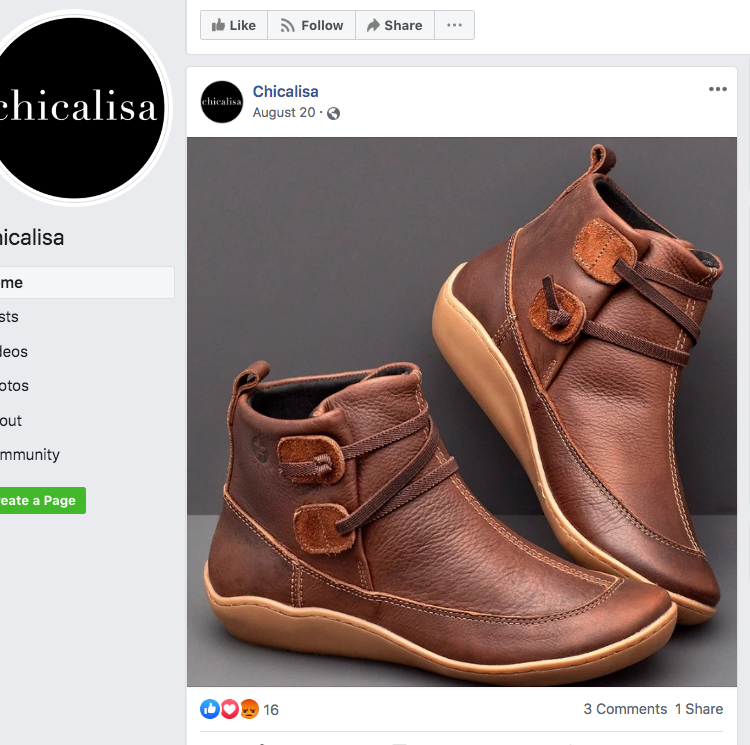

Funny, Tineye brought up four search results where that image also appears. But none of the websites are named Chicalisa. In other words, this Facebook scam artist stole the moccasin photo from one of these online retailers:
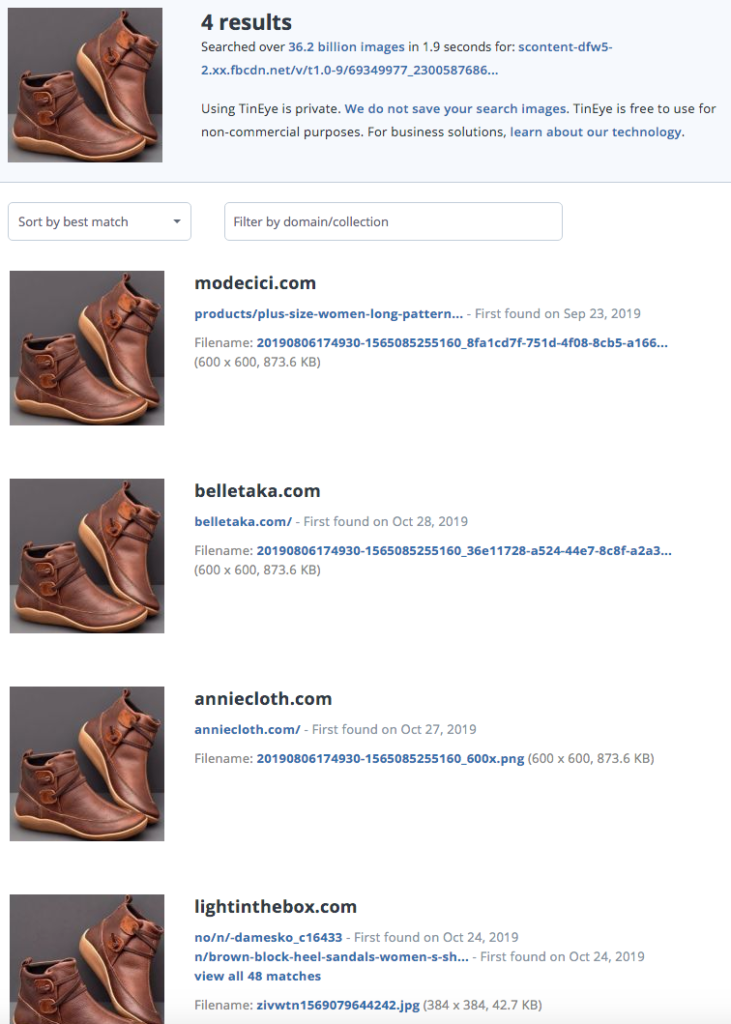

Once confirmed, be sure to report any Facebook scam ads you see using stolen images like this one.
Check Facebook Pages That Track Scam Sellers Before You Buy
Sometimes it’s less obvious that a Facebook ad isn’t real. For example: Maybe a Tineye search brings up 0 results when you check the image. Or maybe it’s something like a pair of jeans that produces thousands of results, which isn’t helpful. Then what?
Luckily there are plenty of Facebook groups and business pages tracking scam sellers in real-time. Go to “What I Ordered vs. What I Got” and check the Facebook scam pages listed there for your suspicious retailer’s name. Another good page to check? FB Ad Scams. Next step: Instead of clicking the suspected Facebook scam ad itself, find the page that’s running it instead. Look on the right-hand side at the page and click “see more” on Page Transparency:
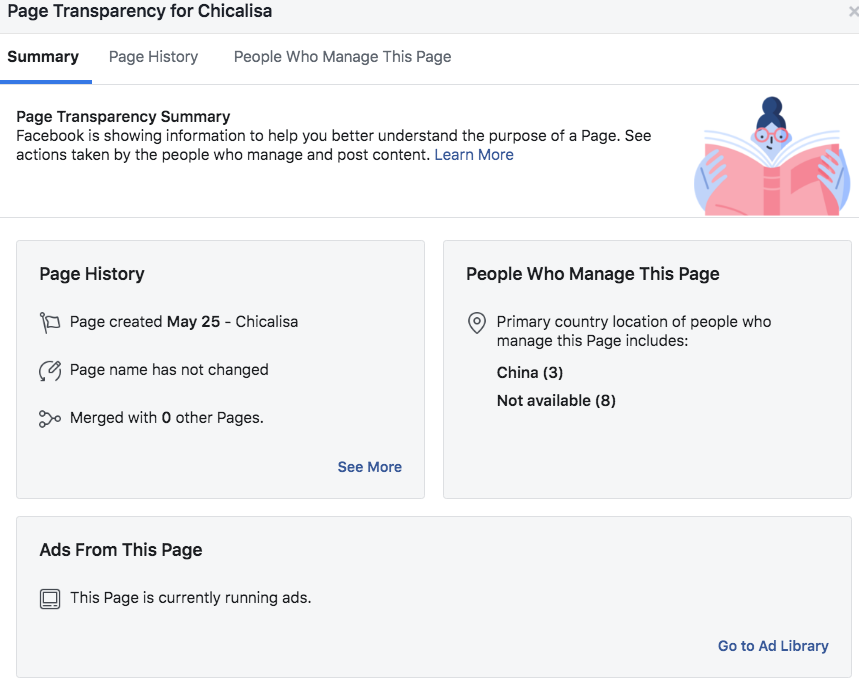

It shows that three people from China manage this business page. Facebook apparently cannot find the other eight people working on it. However, China notoriously banned Facebook in 2009. That means all these people managing the page must connect to Facebook through a VPN. If it seems shady, then it probably is shady…
Type Retailer’s Name + “Scam” Into Your Favorite Search Engine To Confirm
Sneaky scammers aren’t just on Facebook, but they do love running fake ads there and on Instagram. What if you can’t confirm whether or not that Facebook ad is fake, especially on your phone? Try opening your browser and typing the retailer’s name + “scam” into your favorite search engine. (You can also try other variations, like “complaint,” “BBB” or “fraud.”) Here’s an example I ran with Fivesixco, one of the Facebook ads I reported in October 2019:
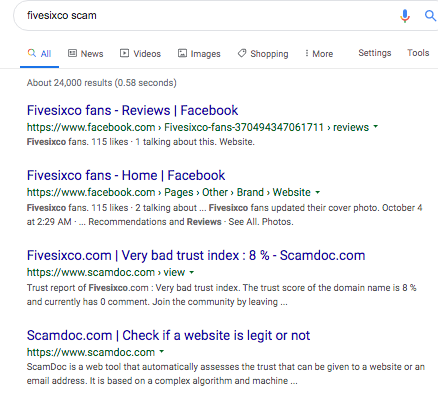

These tips should help make online shopping for gifts this holiday season a little less scary. All it takes is a few minutes of research to protect yourself from online thieves during holiday shopping!

